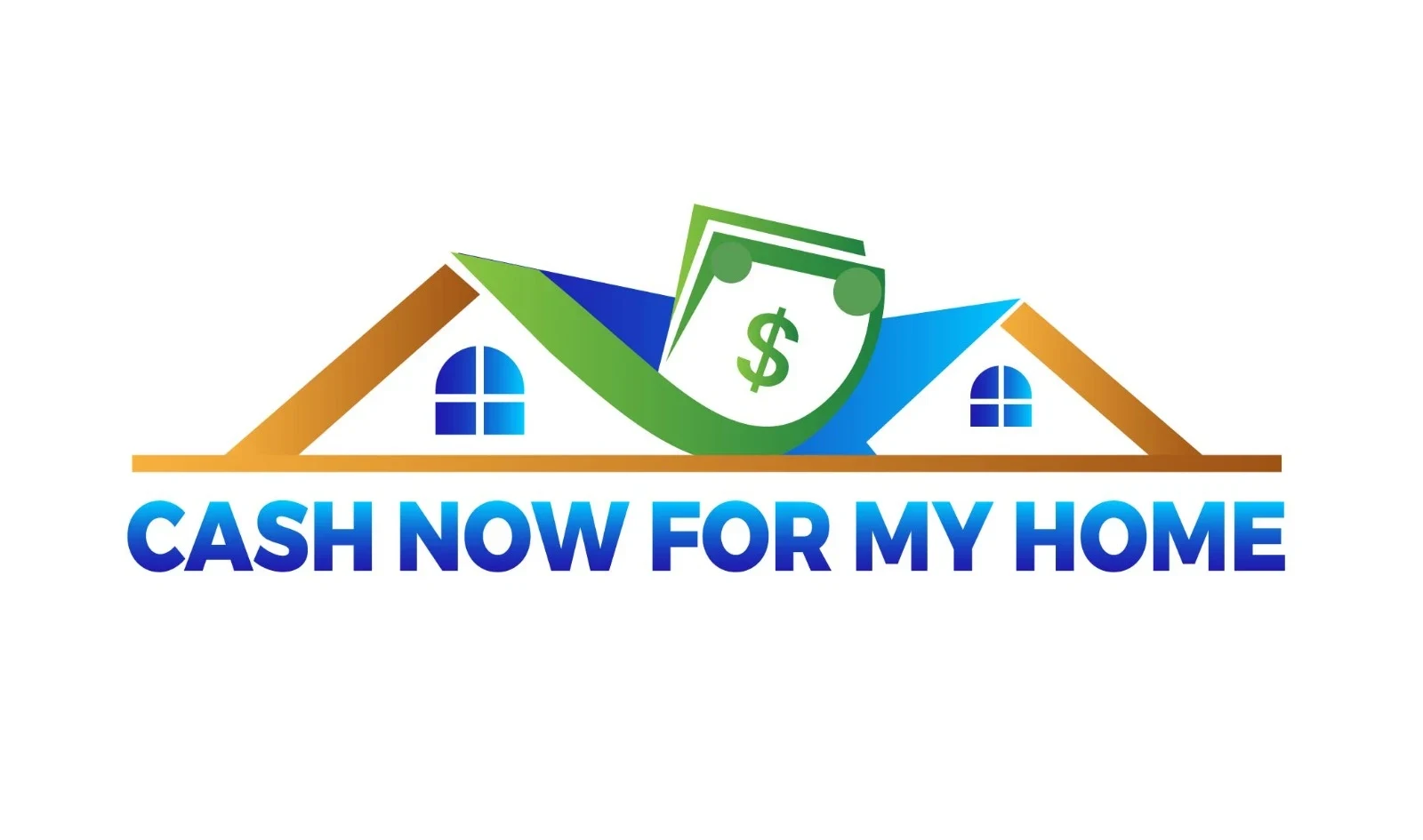Imagine finding the perfect mobile home, nestled in a serene community with all the key features you desire. You can already envision the cozy nights and cherished memories that lie ahead. But before you begin this exciting journey, it’s crucial to understand how much your monthly payment will be. After all, affordability is key. In this article How Much Is a Monthly Payment on a Mobile Home we will discuss all you need to know about financing a mobile home.
We’ll guide you through the process of estimating your monthly payment, helping you make informed decisions about your future home. Whether you’re starting your search or have already found “the one,” this information will empower you to navigate the mobile home market with confidence.
So let’s get started on this informative journey and equip ourselves with the knowledge needed to make sound financial choices for our dream mobile home.
Deciphering Mobile Home Monthly Payments
Understanding the monthly payment amount is crucial. Several factors influence these payment amounts, including the price of the mobile home itself, interest rates, loan terms, down payment percentages, credit history, and financial readiness.
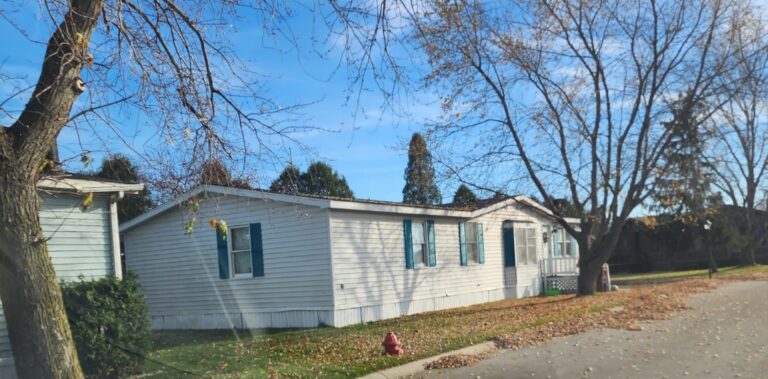
Factors Influencing Payment Amounts
The price of the mobile home plays a significant role in determining the monthly payment amount. Generally, more expensive homes will result in higher payments. Interest rates can greatly impact the overall payment. Higher interest rates mean higher monthly payments, while lower rates can reduce the payment burden.
Loan terms and down payment percentages also come into play when calculating monthly payments. Longer loan terms typically result in lower payments but may increase the total cost over time due to accruing interest. On the other hand, shorter loan terms often lead to higher payments but can save money on interest in the long run.
Lenders consider credit history and financial readiness when determining payment amounts as well. A good credit score and stable financial situation may qualify borrowers for lower interest rates or more favorable loan terms. Conversely, poor credit or financial instability could result in higher interest rates or stricter lending requirements.
Monthly Payment Estimations with Loan Calculators
To get a better idea of what your monthly payments might look like for a mobile home purchase, utilizing online loan calculators can be incredibly helpful. These tools take into account variables such as the loan amount, interest rate, and repayment period to provide accurate estimations.
By inputting specific loan terms and interest rates into these calculators, potential buyers can quickly estimate their monthly payments based on different scenarios. This allows for informed decision-making by exploring various options before committing to a particular financing plan.
Financing Terms and Definitions
Understanding key financing terms is essential for deciphering how monthly payments are calculated for mobile homes:
Principal: The initial amount borrowed from a lender.
Interest: The cost of borrowing money, expressed as a percentage of the loan amount.
APR (Annual Percentage Rate): The total cost of borrowing, including both the interest rate and any additional fees or charges.
Term Length: The duration of the loan repayment period.
Differentiating between fixed-rate and adjustable-rate mortgages is also crucial. A fixed-rate mortgage maintains a consistent interest rate throughout the entire loan term, providing stability in monthly payments.
Financing Options for Mobile Homes
Traditional Mortgages vs. Chattel Loans
Traditional mortgages and chattel loans are two distinct financing options for mobile homes. A traditional mortgage involves a real estate transaction where the mobile home is permanently affixed to land. On the other hand, chattel loans are specifically designed for mobile homes that are not attached to land and have different requirements than traditional mortgages.
Understanding the differences between these two types of loans is crucial when considering financing options for a mobile home. Traditional mortgages typically require a higher credit score and a larger down payment since they involve the purchase of both the home and the land it sits on. Chattel loans, however, often have more lenient credit requirements and may only require a down payment on the home itself.
Government-Backed Loan Programs
Government-backed loan programs can provide additional financing possibilities for individuals looking to purchase a mobile home.
FHA and VA Loans Explained
FHA (Federal Housing Administration) loans are insured by the government agency and offer favorable terms for eligible borrowers. These loans typically require a lower down payment compared to traditional mortgages, making them an attractive option for those with limited funds. FHA loans often have more flexible credit requirements.
VA (Veterans Affairs) loans are available exclusively to veterans, active-duty service members, and their spouses. These loans offer competitive financing options with no down payment requirement in many cases. VA loans also provide additional benefits such as lower interest rates and no private mortgage insurance (PMI).
Understanding the benefits and eligibility criteria of FHA and VA loans can help potential buyers explore alternative financing options that suit their needs.
Title I and Title II Loan Differences
Title I loans are offered by private lenders and provide financing for manufactured homes on leased land or owned land. These loans can be used to purchase or refinance a mobile home but do not cover the cost of purchasing land itself.
Title II loans, also known as FHA Title II manufactured home loans, offer similar benefits to Title I loans but are insured by the Federal Housing Administration. These loans can be used for purchasing or refinancing a mobile home and may include the cost of land.
Knowing the differences between these loan types allows borrowers to make informed decisions based on their specific circumstances and financing needs.
Exploring Personal Loan Alternatives
For individuals who do not qualify for traditional mobile home loans or government-backed programs, personal loans can be an alternative financing option to consider.
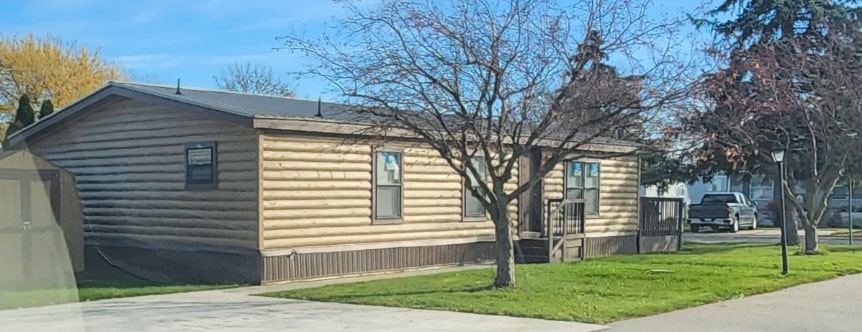
Understanding Down Payments for Mobile Homes
Understanding the down payment requirements is essential. This section will delve into the different down payment amounts and requirements, compare them with traditional homes, and explore their impact on monthly installments.
Down Payment Amounts and Requirements
The down payment amount required for a mobile home purchase can vary based on factors such as loan type and borrower qualifications. Lenders typically require a down payment ranging from 5% to 20% of the mobile home’s purchase price. Knowing these requirements helps potential buyers plan their finances accordingly.
Comparing Manufactured and Traditional Home Down Payments
Mobile homes generally have lower down payment requirements compared to traditional stick-built homes. This is because mobile homes are often more affordable in terms of their purchase prices. Traditional homes, on the other hand, tend to have higher purchase prices, which often results in higher down payment percentages being required. Understanding this difference allows buyers to make informed choices based on their financial capabilities.
Impact of Down Payments on Monthly Installments
The amount of your down payment can have a significant impact on your monthly installments when financing a mobile home. A higher down payment reduces the loan amount, resulting in lower monthly payments. Conversely, lower down payments may lead to higher loan amounts and subsequently higher monthly payments. Recognizing this relationship between down payments and monthly installments helps borrowers determine what they can afford comfortably.
An Example on How Much a Payment On a Mobile Home Would Be
For example, let’s say you’re considering purchasing a $100,000 mobile home with a 10% down payment requirement. If you put $10,000 (10%) as your down payment, you would need to finance the remaining $90,000 through a loan. With this reduced loan amount, your monthly installments would be lower compared to if you had made a smaller down payment.
On the other hand, if you only put $5,000 (5%) as your down payment, you would need to finance $95,000 through a loan. With a higher loan amount, your monthly installments would be higher than if you had made a larger down payment.
Affordability and Financing Pre-Qualification
Assessing Your Financial Readiness
Evaluating your financial situation is a crucial step before applying for a mobile home loan. Take some time to assess your income, expenses, and debt-to-income ratio. This will give you a clear understanding of what you can afford and help you make informed decisions about financing options.
Another important aspect of assessing your financial readiness is understanding your credit score and history. Lenders rely on this information to determine the likelihood of loan approval and the interest rates they offer. A higher credit score generally translates to better loan terms, so it’s essential to know where you stand.
By evaluating your financial readiness, you can identify any areas that need improvement or adjustment. If your debt-to-income ratio is high, for example, you may want to work on reducing your existing debts before applying for a loan. Similarly, if your credit score needs improvement, taking steps to boost it can increase your chances of securing favorable financing.
The Pre-Qualification Journey
Once you’ve assessed your financial readiness, the next step is pre-qualification. This process involves obtaining personalized estimates based on your individual financial information. These estimates take into account factors such as credit score, down payment amount, and loan terms to provide accurate payment calculations.
During the pre-qualification process, lenders will review your credit report to assess your creditworthiness. They will also consider whether you own land or plan to purchase it along with the mobile home. Land ownership status can affect the type of loan available and open up more financing options.
Being aware of these considerations allows borrowers to prepare necessary documentation in advance and explore suitable loan options. It’s important to note that pre-qualification does not guarantee final approval for a loan but provides valuable insights into what you can expect in terms of affordability.
Having personalized estimates empowers buyers by giving them an idea of their monthly payments based on their unique circumstances. This information allows you to make informed decisions about the type of mobile home you can afford and whether it fits within your budget.
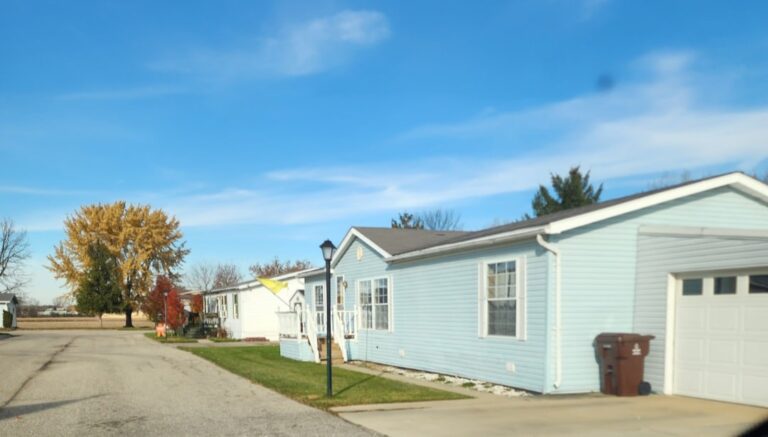
The Role of Interest Rates in Mobile Home Financing
Current Trends in Interest Rates
Staying updated on current interest rate trends is crucial for borrowers looking to finance a mobile home. By keeping an eye on the market conditions, potential buyers can make informed decisions about their purchase. Interest rates have a tendency to fluctuate over time, which can directly impact monthly payments and long-term costs. For example, if interest rates are currently low, it might be an opportune time to secure financing for a mobile home as it could result in lower monthly payments and overall savings throughout the loan term. On the other hand, if interest rates are high, potential buyers might consider waiting for rates to decrease before making their purchase.
Long-Term Cost Implications of Rates
Even slight differences in interest rates can have significant long-term cost implications. It’s important for borrowers to understand that higher interest rates result in higher overall repayment amounts over the life of the loan. For instance, let’s consider two scenarios: one with a 4% interest rate and another with a 6% interest rate on a $100,000 loan over 30 years. With the 4% rate, the borrower would pay approximately $71,869 in total interest over the course of the loan term. However, with the 6% rate, the total interest paid would increase to around $115,838 – a difference of nearly $44,000! This highlights how even seemingly small variations in interest rates can significantly impact long-term affordability.
Considering these long-term cost implications is crucial for borrowers when choosing the most affordable financing option for their mobile home purchase. By carefully evaluating different lenders and loan terms based on prevailing interest rates at any given time, potential buyers can save substantial amounts of money over the life of their loan.
Types of Mobile Homes and Their Costs
Mobile vs. Modular vs. Manufactured Homes
Understanding the distinctions between mobile, modular, and manufactured homes is crucial when considering a purchase. Each type has its own construction methods, regulations, and financing options available. By familiarizing themselves with these differences, buyers can make an informed decision that aligns with their preferences and budget.
Mobile homes are typically built on a steel frame with wheels attached for mobility. They are designed to be transported from one location to another and are subject to less stringent building codes than other types of homes. On the other hand, modular homes consist of multiple sections or modules that are constructed off-site in a factory setting before being transported to the final location for assembly. These homes often adhere to stricter building codes due to their permanent nature.
Manufactured homes, also known as HUD (Department of Housing and Urban Development) code homes, are constructed entirely in a factory setting and must meet specific federal standards. They are built on a non-removable steel chassis but do not have wheels like mobile homes. This type of home is subject to rigorous inspections during the manufacturing process to ensure compliance with safety standards.
Price Variations by Home Type and Size
The cost of mobile, modular, and manufactured homes can vary significantly based on several factors such as size, features, and location. Mobile homes tend to be the most affordable option due to their simpler construction methods and lower building code requirements.
Modular homes generally command higher prices compared to mobile or manufactured homes because they undergo more extensive factory construction processes before being assembled on-site. The precision involved in constructing modules off-site results in higher quality control measures but also contributes to increased costs.
Price Range on Manufactured Homes
Manufactured homes fall somewhere in between regarding price range. While they offer affordability compared to traditional stick-built houses, they may still have variations in pricing depending on factors such as size upgrades or additional features.
It’s essential for buyers to recognize these price variations when budgeting for their mobile home purchase. Setting realistic expectations and understanding the potential costs associated with each type of home will help buyers make informed decisions.
By considering the distinctions between mobile, modular, and manufactured homes, as well as the variations in pricing based on factors like size and features, buyers can confidently choose a home that fits their needs and aligns with their financial capabilities.
You might also be interested in our article: Mobile Home Loan Calculator
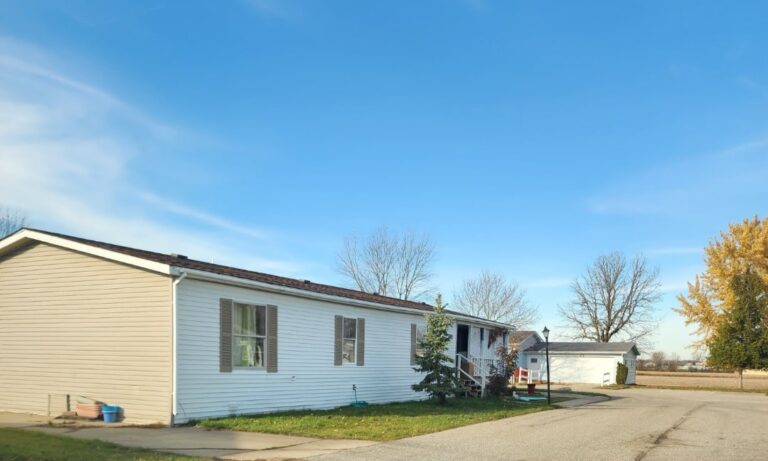
Securing Financing for Your Mobile Home
Steps to Obtain a Mobile Home Loan
To obtain a mobile home loan, you need to follow a few important steps. First, gather all the necessary documentation required by lenders. This typically includes proof of income, employment history, credit history, and identification documents. Once you have all the necessary paperwork in order, complete the loan application forms provided by the lender. Be thorough and accurate when filling out these forms to ensure a smooth process.
After submitting your application, there are two crucial steps that can greatly benefit you as a borrower: prequalification and preapproval. Prequalification involves providing basic financial information to lenders who will then assess your eligibility for a loan. This step helps you understand how much financing you may qualify for and gives you an idea of what your monthly payment might be.
Pre-Approval Process For a Mobile Home Loan
Preapproval takes the process one step further by providing borrowers with a conditional commitment from the lender to grant them a specific loan amount. This step is more comprehensive than prequalification as it involves verification of financial information such as income, assets, and creditworthiness. Preapproval strengthens your negotiating power when purchasing a mobile home as sellers know that you are serious about securing financing.
Understanding these steps involved in obtaining a mobile home loan can help streamline the process for potential buyers. By being prepared with all necessary documentation and going through prequalification and preapproval stages, borrowers can confidently approach lenders knowing their eligibility and financing options.
Evaluating Lender Reviews and Recommendations
It’s essential to conduct thorough research on various lenders’ reviews and recommendations. Take the time to read customer testimonials or reviews online to gain insight into their reputation and customer satisfaction levels.
Consider multiple factors when evaluating lenders such as interest rates, fees associated with the loan, customer service quality, and overall loan terms offered by each lender. It’s important to find reliable lenders who offer competitive interest rates and favorable loan terms that suit your financial situation.
By evaluating lenders, you can ensure a positive borrowing experience and secure financing terms that align with your needs. Reading reviews and recommendations from other borrowers can provide valuable insights into the lender’s reputation and help you make an informed decision.
Additional Costs in Mobile Home Ownership
Owning a mobile home involves more than just the monthly payments. There are several long-term ownership expenses to consider, such as insurance, property taxes, maintenance costs, and utilities. Understanding these additional expenses is crucial for buyers to budget effectively for ongoing homeownership responsibilities.
Beyond the initial purchase price and financing costs, there are various financial obligations that come with owning a mobile home. One of the most important aspects to consider is insurance. Just like traditional homes, mobile homes need to be insured against potential damages or accidents. The cost of insurance can vary depending on factors such as the location of the home and its size.
Property Taxes and Expenses
Property taxes are another expense that owners must account for. The amount of property tax you pay will depend on where your mobile home is located. Different areas have different tax rates, so it’s essential to research and understand how much you’ll be required to pay annually.
Maintenance costs also play a significant role in long-term ownership expenses. Mobile homes require regular upkeep and repairs just like any other property. From routine maintenance tasks like cleaning gutters and replacing filters to more substantial repairs like fixing plumbing issues or replacing roofing materials, these costs can add up over time.
Utilities are another ongoing expense that should not be overlooked. Mobile homes require electricity, water, heating, and cooling systems just like any other dwelling. Depending on the size of your mobile home and personal usage habits, utility bills can fluctuate significantly throughout the year.
Location of the Mobile Home
The location of your mobile home can have a significant impact on overall costs as well. Property values can vary greatly depending on where your home is situated. Higher property values may result in higher land lease fees if you do not own the land outright.
Insurance rates may also be affected by location due to varying levels of risk associated with certain areas (e.g., proximity to flood zones or high-crime neighborhoods). Property taxes may differ based on the local tax rates in your specific location.
Size of The Mobile Home
Size is another factor that can influence costs. Larger mobile homes generally come with higher purchase prices and potentially higher ongoing expenses. They require more materials for maintenance and repairs, and utility bills may be higher due to increased square footage.
Recognizing the impact of location and size on costs is crucial for prospective buyers. It helps them make informed decisions about affordability and ensures they can budget effectively for all associated expenses of owning a mobile home.
Navigating the Buying Process with Precision Tools
Loan Calculators for Optimal Payment Planning
Loan calculators are invaluable tools for potential buyers of mobile homes. These calculators allow individuals to plan their monthly payments based on different loan scenarios, helping them make informed decisions about their purchase. By inputting key information such as loan amount, interest rate, and repayment period, borrowers can determine the most suitable loan terms aligned with their financial situation.
One of the main benefits of utilizing loan calculators is that they enable buyers to make optimal payment plans that align with their budget and goals. With just a few clicks, borrowers can see how different factors affect their monthly payments and overall repayment amount. This empowers them to adjust variables such as down payment or loan term length to find a balance that suits their needs.
For example, let’s say a buyer wants to purchase a mobile home but has a limited budget for monthly payments. By using a loan calculator, they can experiment with different interest rates and repayment periods to find the combination that allows them to comfortably afford their dream home without straining their finances.
Benefits of Santiago Financial’s Tools (genericized)
Santiago Financial offers an array of user-friendly tools designed to simplify the loan estimation and application process for mobile homes. Their loan calculators provide accurate payment estimations, taking into account factors such as interest rates and down payments. This enables buyers to plan their finances effectively before committing to a specific loan.
By utilizing Santiago Financial’s tools, potential buyers have access to accurate and reliable information at their fingertips. This ensures transparency throughout the financing process and helps eliminate any surprises or uncertainties regarding monthly payments.
These tools offer convenience by allowing users to explore various loan scenarios from the comfort of their own homes. Buyers can easily compare different options side by side without having to visit multiple lenders or spend hours crunching numbers manually.
Conclusion on How Much Is a Monthly Payment on a Mobile Home
Congratulations! You’ve now gained a comprehensive understanding of mobile home financing and the factors that impact your monthly payments. By deciphering the complexities of down payments, interest rates, and additional costs, you’re equipped to make informed decisions when securing financing for your mobile home.
Now it’s time to take action. Start by exploring the various financing options available to you and determine which one aligns best with your financial goals. Remember to consider affordability and pre-qualification to ensure a smooth and stress-free buying process. With precision tools at your disposal, navigate the mobile home market confidently, knowing that you have the knowledge and resources to make the right choices.
So go ahead, embark on this exciting journey of homeownership in a mobile home. Your dream of having a place to call your own is within reach. Happy house hunting!
Frequently Asked Questions
How much is the average monthly payment on a mobile home?
The average monthly payment on a mobile home can vary depending on factors such as the price of the home, interest rates, and loan terms. However, you can expect to pay anywhere from $200 to $800 per month for your mobile home.
What are the financing options available for mobile homes?
There are several financing options available for mobile homes, including traditional mortgage loans, chattel loans, and personal loans. Each option has its own requirements and terms, so it’s important to explore all your options and choose one that fits your needs and financial situation.
How much down payment do I need for a mobile home?
The down payment required for a mobile home can vary depending on factors such as the lender’s requirements and your credit score. Generally, you can expect to make a down payment of around 5% to 20% of the purchase price of the mobile home.
Can I pre-qualify for financing before buying a mobile home?
Yes, you can pre-qualify for financing before buying a mobile home. Pre-qualification allows you to determine how much you may be eligible to borrow based on your income, credit score, and other financial factors. It gives you an idea of what you can afford and helps streamline the purchasing process.
What role do interest rates play in mobile home financing?
Interest rates play a crucial role in determining the cost of financing your mobile home. A higher interest rate means higher monthly payments over time, while a lower interest rate results in more affordable payments. It’s important to shop around for competitive interest rates when seeking financing for your mobile home.
You may also be interested in our articles:
Donate Your Mobile Home: Easy Steps to Make a Difference
